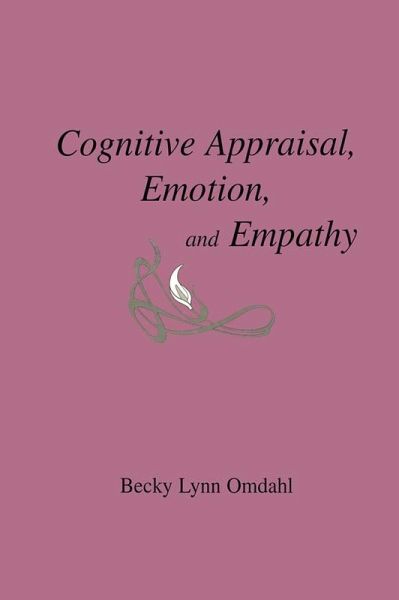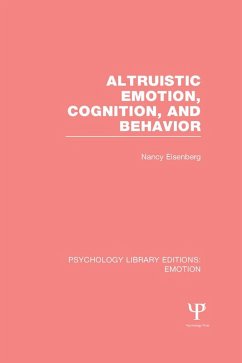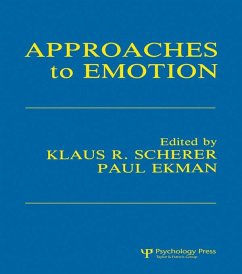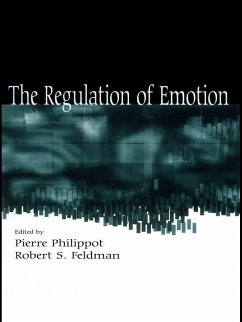
Cognitive Appraisal, Emotion, and Empathy (eBook, PDF)
Versandkostenfrei!
Sofort per Download lieferbar
49,95 €
inkl. MwSt.
Weitere Ausgaben:

PAYBACK Punkte
25 °P sammeln!
In a wide array of social sciences, interest in emotion is flourishing. Psychologists, sociologists, anthropologists, communication scholars, and cognitive scientists are exploring human emotions in a variety of contexts. This book speaks to central issues raised by scholars in these disciplines through its review of leading cognitive appraisal theories of emotion, clarification of the nature of empathy, and exploration of how people identify and respond to the emotions hidden within the stories people tell. Intrigue with the separateness and oneness of human existence and experience is eviden...
In a wide array of social sciences, interest in emotion is flourishing. Psychologists, sociologists, anthropologists, communication scholars, and cognitive scientists are exploring human emotions in a variety of contexts. This book speaks to central issues raised by scholars in these disciplines through its review of leading cognitive appraisal theories of emotion, clarification of the nature of empathy, and exploration of how people identify and respond to the emotions hidden within the stories people tell.
Intrigue with the separateness and oneness of human existence and experience is evident throughout history. It appears in the teachings of all great religions, in the commentaries of philosophers, and in the perceptions of the most famous characters in classic literature. Perhaps it is this wonderment with human distinction and unity that has spawned interest in empathy as a pervasive human phenomena.
This book presents an initial examination of the role of cognitive appraisals in facilitating decoding accuracy and empathy. It compares the leading cognitive appraisal theories and addresses the relationships among appraisal information, empathy, and emotion decoding. Real-life descriptions of emotional experiences are used as the basis for a study examining the relationships between perceived appraisals and perspective-taking, and accurate decoding and empathy. Other studies probe the effects of specific appraisal information on decoding and emotional reactions, and address emotional reactivity to stories and delayed retention. Finally, specific applications are offered for parents, educators, social service employees, writers, advertisers, and people striving for personal well-being and healthy relationships.
Intrigue with the separateness and oneness of human existence and experience is evident throughout history. It appears in the teachings of all great religions, in the commentaries of philosophers, and in the perceptions of the most famous characters in classic literature. Perhaps it is this wonderment with human distinction and unity that has spawned interest in empathy as a pervasive human phenomena.
This book presents an initial examination of the role of cognitive appraisals in facilitating decoding accuracy and empathy. It compares the leading cognitive appraisal theories and addresses the relationships among appraisal information, empathy, and emotion decoding. Real-life descriptions of emotional experiences are used as the basis for a study examining the relationships between perceived appraisals and perspective-taking, and accurate decoding and empathy. Other studies probe the effects of specific appraisal information on decoding and emotional reactions, and address emotional reactivity to stories and delayed retention. Finally, specific applications are offered for parents, educators, social service employees, writers, advertisers, and people striving for personal well-being and healthy relationships.
Dieser Download kann aus rechtlichen Gründen nur mit Rechnungsadresse in A, B, BG, CY, CZ, D, DK, EW, E, FIN, F, GR, HR, H, IRL, I, LT, L, LR, M, NL, PL, P, R, S, SLO, SK ausgeliefert werden.













